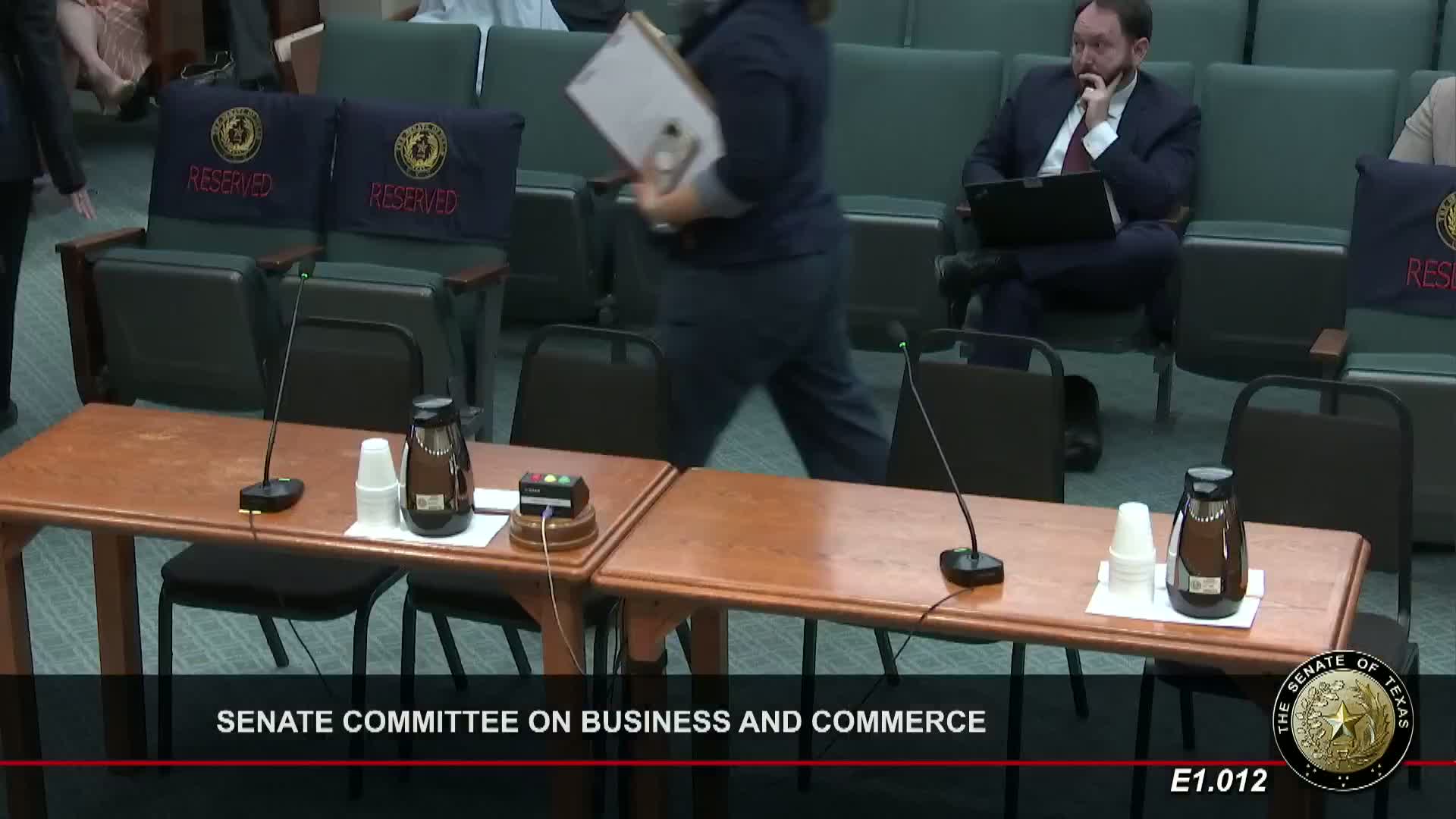Proposal for ethics‑violation registry draws constitutional and due‑process objections
April 24, 2025 | Committee on Business & Commerce, Senate, Legislative, Texas
This article was created by AI summarizing key points discussed. AI makes mistakes, so for full details and context, please refer to the video of the full meeting. Please report any errors so we can fix them. Report an error »

Senate Bill 14‑60, which would direct the Texas Ethics Commission to publish a registry of certain ethics violations and allow licensing agencies to consider listings when issuing or renewing state licenses, produced sustained public comment and legal objections at the committee hearing.
Author Senator Campbell framed the bill as a measure to "stop corruption," noting intended safeguards including an initial warning for a first violation in the substitute drafts she described. "The intent is to stop corruption whether where unethical acts are so it won't be assumed that that's just the cost of doing business," she said, and asked colleagues to work with her on refining the language.
Opponents included constitutional advocates and private citizens who argued the registry would lack adequate due process, risk retroactive penalties and be open to misuse. Jason Buster, testifying against the bill, said SB 14‑60 "violates article 1 section 2, inherent political power, article 2 section 1, separation of powers," and urged that prosecution be a judicial, not a purely administrative, matter. Jessica Pennington said the registry would impose public shaming "with no clear path to redemption" and warned against retroactive enforcement.
Supporters and the bill sponsor said the registry would apply to candidates, officeholders and persons who should have registered as lobbyists, and that the substitute under development would provide a warning for a first violation and additional procedural protections. Senator Campbell said the bill is not intended to target grassroots volunteers or small sign‑makers and indicated a willingness to refine the measure.
The committee received a mix of legal and policy objections, including references to court precedent and separation‑of‑powers concerns; public testimony closed and the committee left SB 14‑60 pending for further drafting.
Author Senator Campbell framed the bill as a measure to "stop corruption," noting intended safeguards including an initial warning for a first violation in the substitute drafts she described. "The intent is to stop corruption whether where unethical acts are so it won't be assumed that that's just the cost of doing business," she said, and asked colleagues to work with her on refining the language.
Opponents included constitutional advocates and private citizens who argued the registry would lack adequate due process, risk retroactive penalties and be open to misuse. Jason Buster, testifying against the bill, said SB 14‑60 "violates article 1 section 2, inherent political power, article 2 section 1, separation of powers," and urged that prosecution be a judicial, not a purely administrative, matter. Jessica Pennington said the registry would impose public shaming "with no clear path to redemption" and warned against retroactive enforcement.
Supporters and the bill sponsor said the registry would apply to candidates, officeholders and persons who should have registered as lobbyists, and that the substitute under development would provide a warning for a first violation and additional procedural protections. Senator Campbell said the bill is not intended to target grassroots volunteers or small sign‑makers and indicated a willingness to refine the measure.
The committee received a mix of legal and policy objections, including references to court precedent and separation‑of‑powers concerns; public testimony closed and the committee left SB 14‑60 pending for further drafting.
View full meeting
This article is based on a recent meeting—watch the full video and explore the complete transcript for deeper insights into the discussion.
View full meeting
